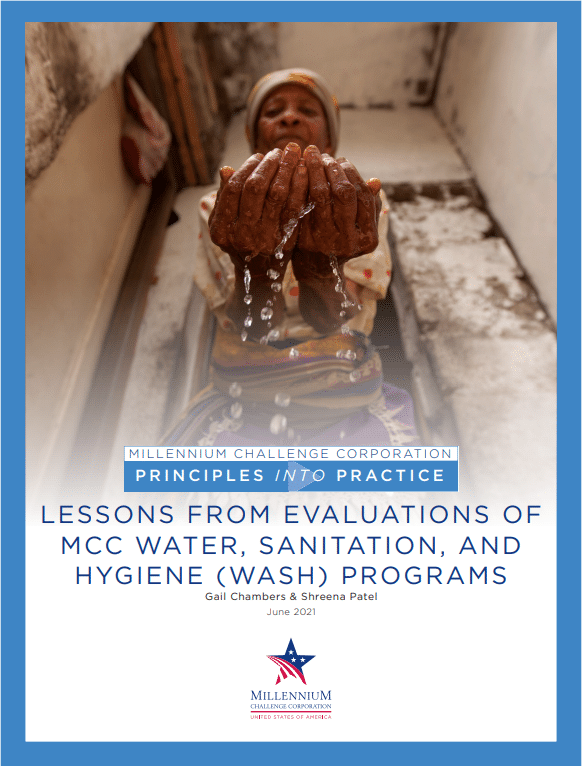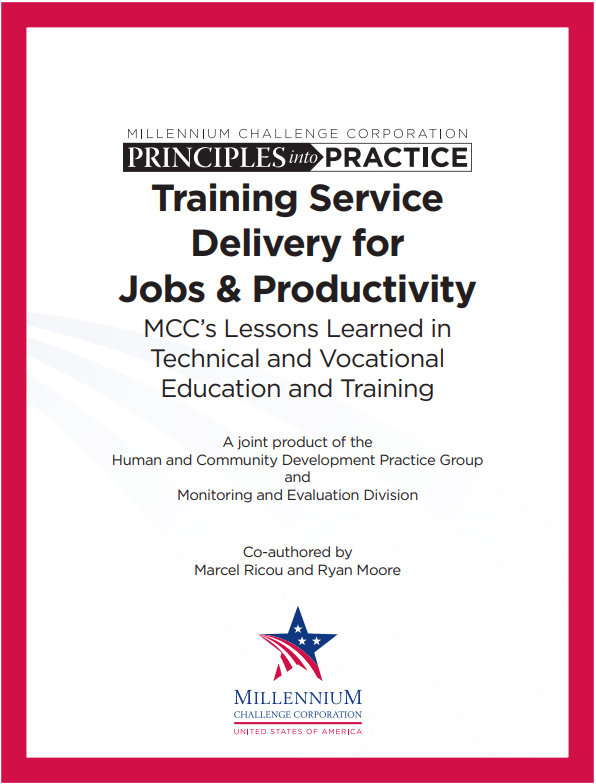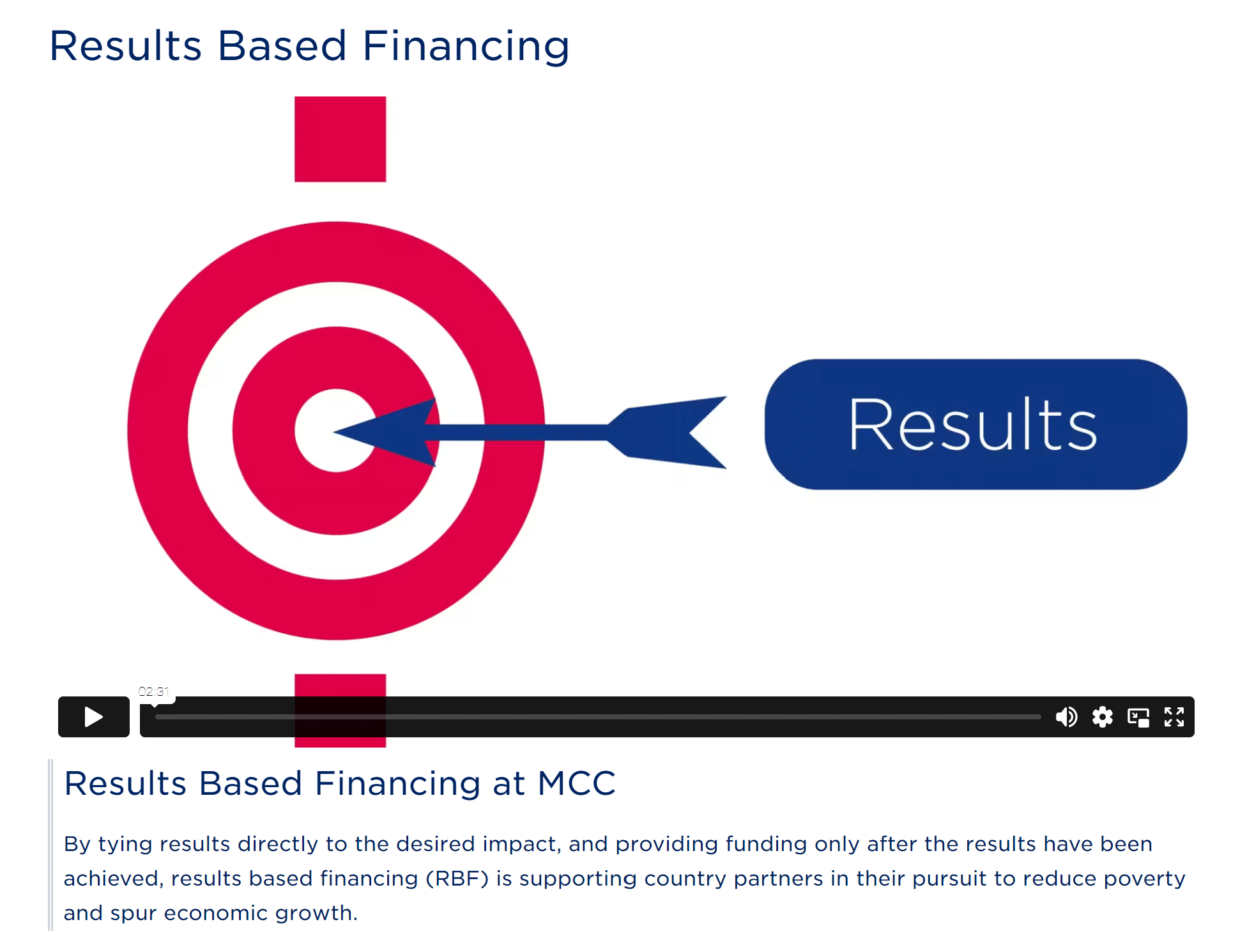Overview
Type of Project |
Long-term deep country systems change |
Strategic Pillar
|
Scale Partnerships |
Sectors
|
∙ Public Administration Reform∙ Health∙ Energy∙ Agriculture∙ Climate∙ Education∙ Employment |
Regions |
Global |
Countries |
∙ U.S.A.∙ Tunisia∙ Lesotho∙ Senegal∙ Mozambique∙ Belize |
Abstract
The Millennium Challenge Corporation (MCC) is an innovative and independent U.S. foreign assistance agency that is helping lead the fight against global poverty with annual grants of approximately USD 1 billion across the globe. This project has played an important role in advancing development finance effectiveness by embedding results-based approaches into MCC’s practices. Through a 4-year partnership, Instiglio supported MCC in its journey to institutionalize results-based finance (RBF). This has entailed supporting five country teams to develop RBF projects, contributing to a USD 40 million portfolio of executed and anticipated RBF projects. Country work was accompanied by reform and change management interventions, including training over 200 MCC.
Project partners

The issue
A strong focus on results has been a defining feature of MCC’s approach since its creation in 2004, creating a need to find new tools and innovations where those results have been elusive. This is critical as while MCC’s investments have a track record of achieving targeted outputs, attaining targeted results has been more difficult. For example, an evaluation of MCC’s water, sanitation, and hygiene (WASH) portfolio reported that the expected health and income gains for households and businesses did largely not materialize. A similar conclusion came from MCC’s first-generation Technical and Vocational Education and Training programs, which did not deliver the desired jobs and income improvements for trainees nor the increased productivity for firms. To address this gap, MCC has sought to strengthen its results orientation through innovative approaches, such as Results Based Financing (RBF).
The solution
Since 2017, Instiglio has provided technical support to MCC to enhance the effectiveness of its development spending and strengthen its use of RBF, in regard to both the delivery of country programs and its internal programing. The partnership was structured along three key goals: (1) building staff capacity to engage with and use RBF mechanisms, (2) supporting the evolution of policies and procedures for the appropriate use of RBF and (3) expanding MCC’s experience with RBF through the provision of on-demand technical assistance to country teams. These investments played a critical role in orienting MCC’s programming toward an enhanced focus on results.
The impact
Our support to MCC has achieved compelling results at both the country and institutional level, for example:
Increased growth:
MCC has grown its portfolio of implemented or anticipated RBF programs, expanding implementation to new countries in sectors, including in health, energy, agricultural management and climate. Demand from country teams has continued to grow as they see RBF as an effective pathway to improving their impact.
Improved awareness and capacity
As MCC has looked to embed RBF within its core processes and procedures, it has invested in building RBF awareness and capacities across the institution. With the goal of supporting this change management process, our partnership trained over 200 MCC staff in RBF and developed a range of supporting materials to help with its institutionalization. We also increased the awareness of RBF by engaging practitioners through events such as the 2022 RBF Launch Week, which assembled hundreds of practitioners from MCC and key development partners, including USAID, the World Bank and The Global Fund.
Policy evolution and internal alignment
Using RBF to drive impact requires new ways of doing business. Our partnership supported MCC to clarify how RBF can be used alongside internal policies and procedures, ensuring teams can develop strong results-oriented programs that meet high standards of probity and fiduciary responsibility.



